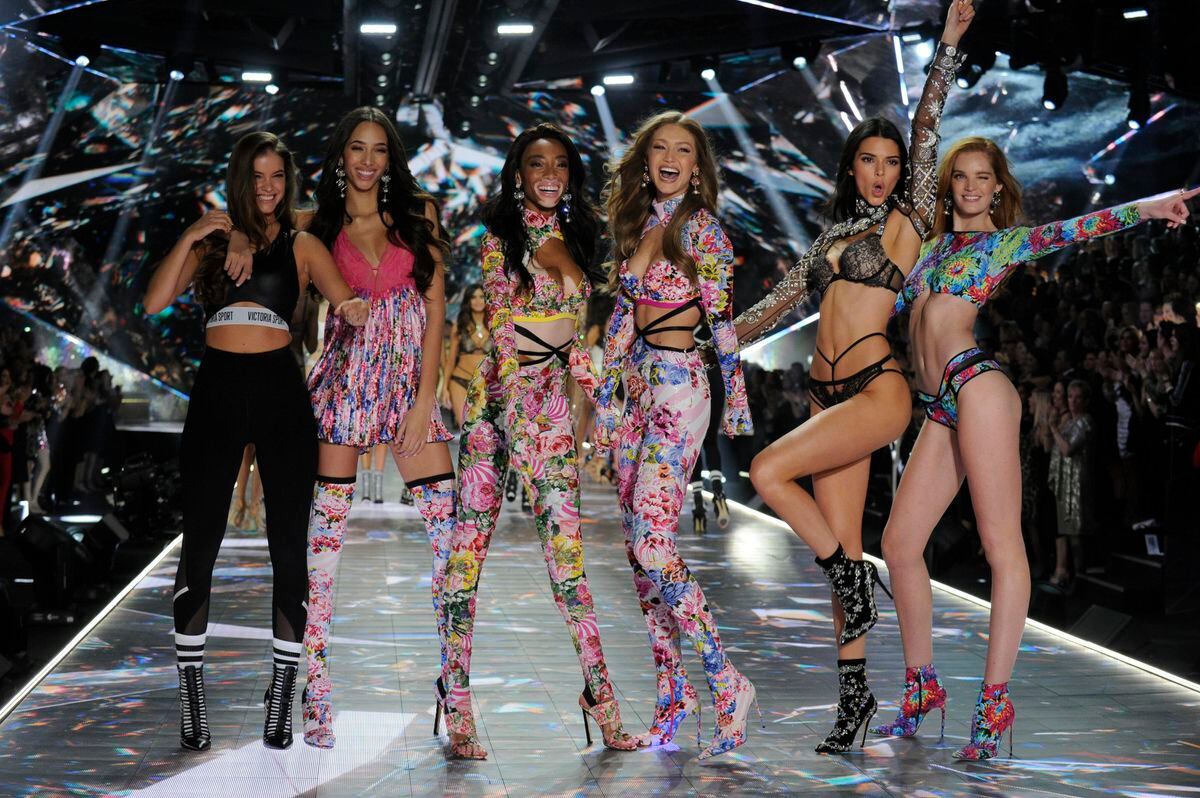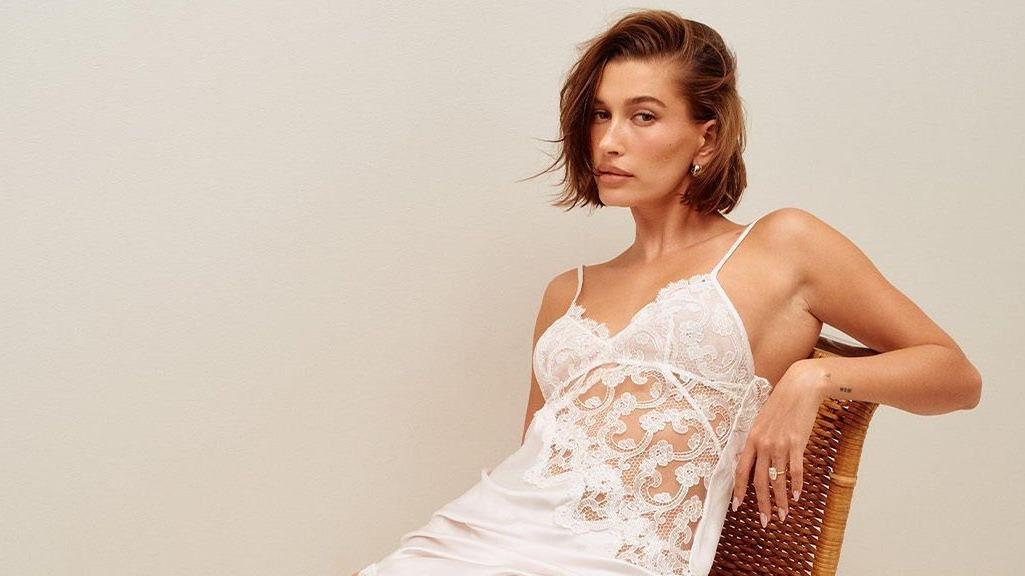The
Victoria's Secret
angels will spread their wings again.
The lingerie and intimate clothing brand aspires to recover its iconic annual parade, but renewed and adapted to the new times, after four years of hiatus.
This was confirmed by the brand's financial director, Timothy Johnson, during the presentation of the 2022 financial year last Friday, March 3, the first for the company alone after its spin-off from the L Brands group: "We will continue to rely on spending on
marketing
tools
to invest in the business, like the new version of our fashion show,” Johnson said.
From Victoria's Secret they have communicated that their new "brand projection" will take them to "new spaces" with a clear objective: "Reclaim one of our best tools of
marketing
and entertainment to date" and "take it for a spin and reflect who we are today."
At the moment there is no date for that return, although it will be at the end of the year.
Victoria's Secret has closed 2022 down, with a 6.5% drop in sales and no less than 46.1% in profits.
“We finished the year, the first full year as an independent and listed company, with a double-digit reduction in our inventory level, and we enter 2023 prudently,” said the brand's CEO, Martin Waters.
The company billed 6,344.3 million dollars (about 5,966 million euros at current exchange rates) in 2022, while its profit has stood at 348.1 million dollars (about 327 million euros), almost half of what won in 2021.
More information
The dictatorship of perfection, misogyny and Jeffrey Epstein: the angels and demons of Victoria's Secret
Bella Hadid preparing to parade in the last Victoria's Secret parade in 2018. The model reneged on the firm after parading for Rihanna and her inclusive lingerie line. Heidi Gutman (Getty)
“Society has changed.
Victoria's Secret no”, headlined the American media specialized in fashion
Business of Fashion
in 2018, when the last fashion show of the brand took place, thus summarizing the root of a problem that affected the company's benefits and especially the way in which its potential clients perceived it.
Its sales had been falling since 2016 and so did its market share, which chose other competing firms that showed an image and a philosophy more consistent with the times, such as Rihanna's lingerie firm, Savage X Fenty.
The shows, starring sculptural supermodels with perfect faces and measurements, such as Gisele Bündchen, Alessandra Ambrosio, Rosie Huntington-Whiteley, Miranda Kerr, Karlie Kloss or Bella Hadid, did not go well with the paradigm shift that the arrival of MeToo brought about
.
by continuing to perpetuate an idea of femininity traversed by the male gaze and desire, where concepts on the rise for younger buyers, such as diversity and inclusion, were conspicuous by their absence.
In 2019, after months of speculation, the company announced the end of its shows, which had been going on for 23 years, and were considered "the Super Bowl of fashion", and in which there used to be performances by front-row singers such as Lady Gaga, Bruno Mars, The Weeknd, Taylor Swift or Beyoncé.
"Fashion is a business of change," they expressed then through a statement.
“We must evolve and change to grow.
With this in mind, we've decided to rethink the traditional Victoria's Secret Fashion Show.
In 2019 and beyond, we will focus on developing exciting and dynamic content and a new type of event, which will be broadcast to our clients on other topical platforms.”
2018 had been her
annus horribilis
.
The 2018 Victoria's Secret
show
was the least watched in history, with only 3.3 million viewers, since it began to be broadcast on television in 2001. The firm's sales continued to decline (in 2018 it lost 50 % of its value).
That same year, the
marketing
director of L Brands, Edward G. Razek, in charge of developing, among other things, the annual show and the inventor of the
angel
concept , gave an interview to the American edition of
Vogue magazine.
where he assured that his show would never include a transgender woman.
She also insisted that the public "has no interest" in the inclusion of plus-size models.
Although she later apologized, her late-night look at the female body had already taken its toll on the brand.
Razek resigned the following year, in 2019, precisely when one of her
former angels
, the model Bella Hadid, paraded for Savage X Fenty and stated that she had "never" felt "so sexy" than parading for the firm commanded by Rihanna. .
The reason?
At Victoria's Secret, Razek instructed the models what poses and attitudes to adopt as they walked the runway, while the singer simply asked her models to do whatever would help them feel sexy.
Kendall Jenner in one of the Victoria's Secret fashion shows. Masato Onoda/WWD (Getty)
This subtle difference changed the focus of the lingerie shows, allowing its protagonists to be more than objects of desire, and to become active subjects on the catwalk.
I wasn't the only
angel
What was revealed: Adriana Lima hung up her wings in 2018 and never walked with Victoria's Secret again, assuring that she was fed up with the dictatorship of perfection and the pressure on her physique: "I will never take off my clothes again for an empty cause" he declared.
For her part, Gisele Bündchen, who signed her contract with the brand at the age of 19, confessed in her autobiography that after years parading in her underwear she began to feel uncomfortable.
"I felt less and less relaxed when they photographed me walking down the catwalk wearing only a bikini or a thong," said the Brazilian model in the same book in which she claimed to have suffered panic attacks and suicidal thoughts during one of the most severe periods. successful in his career.
Despite the brand's efforts (in 2019 they signed Ali Tate Cutler, the first
curvy
mannequin to work for Victoria's Secret, and also Valentina Sampaio and May Simón Lifschtiz, their first trans models), their image could not recover.
In 2020,
The New York Times
published an extensive investigation titled
'Angels' in Hell: The Culture of Misogyny Inside Victoria's Secret
, in which more than 30 executives, employees, contractors and models denounced the company's practices, where harassment, misogyny and macho behavior of its managers was the order of the day.
That report would be the final straw for the credibility and popularity of the lingerie firm.
That same year, L Brands sold the brand to the Sycamore Partners fund for just over 1,000 million dollars (953 million euros), in a last move to save the firm from its drift.
The new Victoria's Secret wants to break away from the old Victoria's Secret and start over.
Perhaps a detail of where the shots will go is in the language chosen by the brand itself: Victoria's Secret announced that its famous
angels
would no longer be called
angels
.
In the next parade, perhaps, more realism will begin to be seen.
After all, it seems that they want to bring their
angels
down to earth.








/cloudfront-eu-central-1.images.arcpublishing.com/prisa/3RK7SFBDLMVU3HOUGG5Q4GMLL4.jpg)






